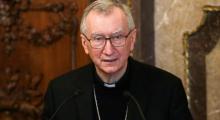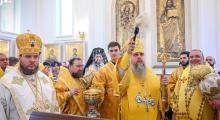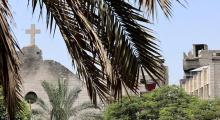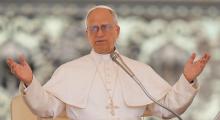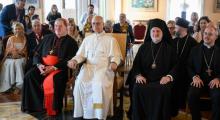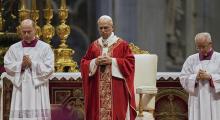Issued by the Catholic Center for Studies and Media - Jordan. Editor-in-chief Fr. Rif'at Bader - موقع أبونا abouna.org
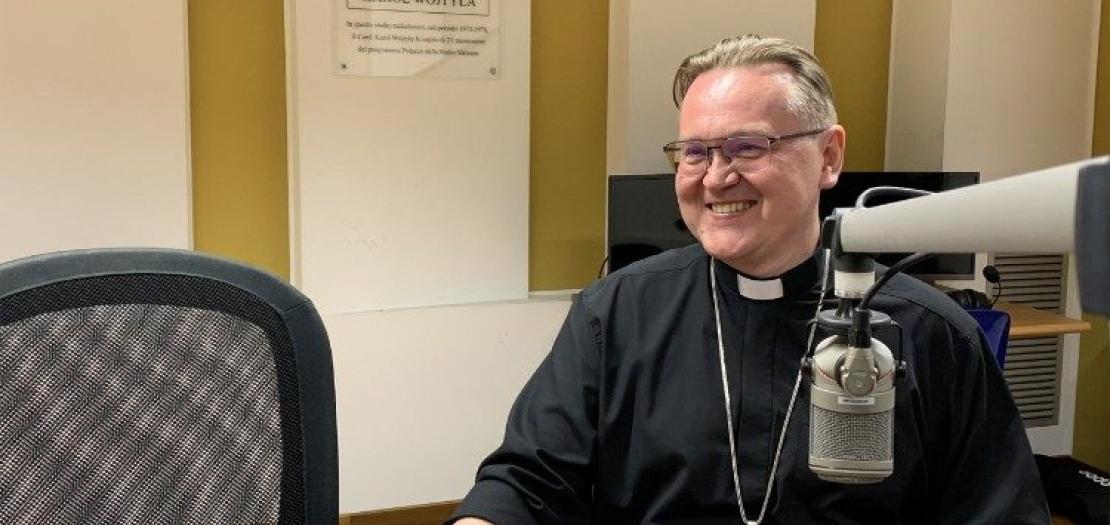
Bishop Nikolaj Dubinin, Auxiliary Bishop of the Archdiocese of the Mother of God in Moscow
In Russia, many people were moved by Pope Leo XIV’s words on peace spoken from the central balcony of St. Peter’s Basilica on May 8, the evening of his election to the papacy.
“We were struck by his appeal for disarmed, disarming peace, a simple yet penetrating concept that he repeated in his subsequent addresses. That has generated hope,” noted Bishop Dubinin.
Speaking to Vatican News, the Auxiliary Bishop of the Archdiocese of the Mother of God in Moscow said many Russians appreciated his emphasis on unity.
“The Pope repeated that word no fewer than eight times during the homily at the Eucharistic celebration marking the start of his Petrine ministry,” he said. “It was an important exhortation not only for our Church but for all of society.”
Great consolation
Dialogue, solidarity, and missionary zeal were other key themes from Pope Leo XIV that resonated immediately, according to Bishop Dubinin.
“Ultimately, they draw a line of continuity with Pope Francis’s pontificate—and that gives us great consolation and new impetus,” he said, calling it a balm that soothes the wounds of a local Church tested by conflict and that continues to pray unceasingly for a complete cessation of hostilities.
Bishop Dubinin highlighted that the Russian Church seeks to remain above partisan divisions precisely because its parishes exemplify “diverse nationalities, cultural backgrounds, and viewpoints.”
“In this situation, the Church shares with the people all their pains and sufferings,” he said. “We deeply feel the impotence of not being able to change events directly, but we trust in Pope Leo XIV’s action, guided by the Holy Spirit.”
A Pope with an open heart
When the new Pope was elected, much of Russian society—even those far from the Church—expressed surprise and admiration for a man who made an immediate good impression.
“Many people told me so,” said Bishop Dubinin. “They were positively surprised to see a youthful, energetic, and deeply personable Pope. He is perceived as a man with an open heart who can also open the hearts of others. And that is necessary to overcome all the fears in our society.”
He pointed to a pilgrimage that a copy of the Salus Populi Romani icon is making to Catholic parishes across Russia.
“The image of Our Lady was a gift that Pope Francis wanted to give us after the bishops asked him for a sign of consolation, given that many of the faithful will not be able to come to Rome as pilgrims for the Jubilee,” he said. “At the close of the Holy Year, the icon will be enshrined in the Moscow cathedral.”
Importance of dialogue
Regarding interreligious dialogue, Bishop Dubinin said that a group of Muslims have translated Fratelli tutti, Pope Francis’ encyclical dedicated to fraternity and social friendship.
“While we were preparing the Russian translation of the document, we learned with joy and surprise that Muslims had done it before us,” he said. “They then had it printed, and we presented it together. It is the first time in our history that something like this has happened: that document awakened dialogue, because Muslims perceived that the encyclical’s message truly addresses all humanity.”


